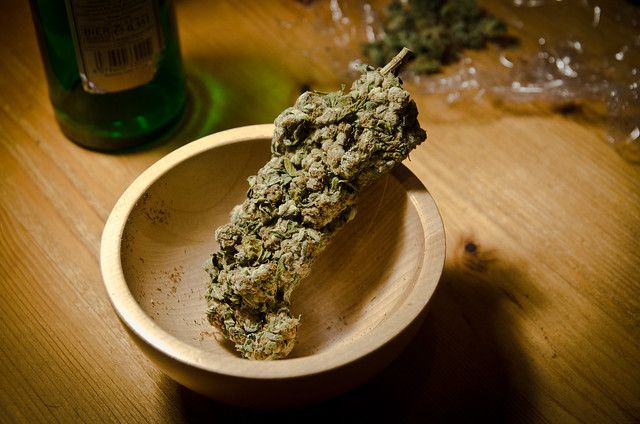Brooklyn DA To Give Pass To Low-Level, First-Time Marijuana Offenders

Brooklyn District Attorney Ken Thompson announced Tuesday that his office will no longer prosecute first-time offenders arrested for low-level misdemeanor marijuana possession charges, suggesting it’s been a waste of resources that unfairly targets young men of color.
The DA laid out the new policy in a press release, saying that he will decline to prosecute marijuana cases where the defendent has no prior arrests or a minimal criminal record, and has given authorities a verifiable name and address. However, his office also provided a list of exceptions that may be prosecuted. The exceptions include cases where a defendant is nabbed smoking in public, is a sex offender, has an open warrant or the marijuana is found as a result of search warrant.
Here’s Thompson’s full statement:
“My office and the New York City Police Department have a shared mission to protect the public and we will continue to advance that goal. But as District Attorney, I have the additional duty to do justice, and not merely convict, and to reform and improve our criminal justice system in Brooklyn,” District Attorney Thompson said.
“This new policy is a reasonable response to the thousands of low-level marijuana arrests that weigh down the criminal justice system, require significant resources that could be redirected to more serious crimes and take an unnecessary toll on offenders. Pursuant to this policy, we will use our prosecutorial discretion to decline to prosecute, and dismiss upfront, certain low-level marijuana possession cases based on criteria concerning the particular individual and the circumstances of the case. For example, cases will be dismissed prior to arraignment for those with little or no criminal record, but we will continue to prosecute marijuana cases which most clearly raise public health and safety concerns.
“This policy does not express approval for the use of marijuana and should not be interpreted as such. The policy will not apply to those who smoke marijuana in public, or in the presence of children. It will not apply to 16 and 17-year-old offenders, who instead will be redirected on to a healthier path through a diversion program. It will not apply to those with a serious criminal history, to those who are known to act in a dangerous manner while under the influence, or to those who have a history of selling drugs to children,” District Attorney Thompson said.
“If the conduct in which the offender has engaged is the mere possession of a small amount of marijuana in public, it would not, under most circumstances, warrant saddling that offender with a new criminal conviction and all of its attendant collateral consequences related to employment, education and housing,” the District Attorney said.
“Furthermore, in 2013, this office processed well over 8,500 cases where the top charge was a class ‘B’ misdemeanor marijuana possession. More than two-thirds of those cases ended up being dismissed by judges, most often because the defendant was offered an adjournment in contemplation of dismissal at his or her criminal court arraignment. The processing of these cases exacts a cost on the criminal justice system and takes a toll on the individual. Given that these cases are ultimately — and predictably — dismissed, the burdens that they pose on the system and the individual are difficult to justify. We are pouring money into an endeavor that produces no public safety benefit,” the District Attorney added.
The news of Thompson’s decision will not mean a policy shift for the New York Police Department. Regardless of prosecution, possessing marijuana remains illegal, and NYPD Commissioner Bill Bratton said the announcement “will not result in any changes” at the department, suggesting cops will still make the bust.
Meanwhile, state lawmakers proposed the Fairness and Equity Act yesterday, which seeks to implement the spirit of Thompson’s decision statewide. The act aims to address racial disparities in the arrests by slashing the penalty for possession from a misdemeanor to a violation that carries a fine. It would also allow those previously convicted of possession to clear their record.



